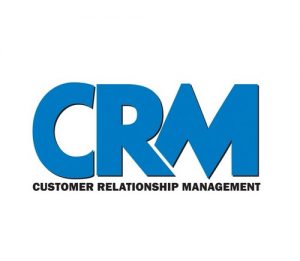
This is meant mainly for marketing consultants and early stage marketing agencies. There might be some variance in a specific person’s situation, their interests, and priorities. But we’ve all had bad clients at some point.
That said, I work with a lot of agencies and many of them experience the same issues with clients. Some of them have made efforts to eliminate these issues and some haven’t been in business long enough to notice any trends.
Firing a client can be a tough decision. They’re your income and if you get rid of them are you really going to replace them with someone better? I urge you to consider how much energy they’re sucking out of you, maybe they’re the reason you haven’t found anyone better by taking up your time and exhausting your positive energy.
Here are five clients that I recommend giving the boot!
The Closet Expert
This client usually had a really bad experience at a marketing agency a few months ago. They left after things didn’t go as they had expected, usually because that agency didn’t really know what they were doing.
I’d ask what agency they worked with and research them a little, or maybe it’s a familiar agency. Consider this: does this client really know more about marketing than a marketing agency? *Skeptical face*
Ask this client what they’re looking for from you, and be prepared to keep probing for information if they give you a vague response. Read: “I’m looking for marketing help” is unacceptable. While it isn’t expected for them to know all the details of a marketing retainer, they should know about their business and where they want to improve. If they can’t articulate that, but they can articulate how little a previous marketing agency knows, maybe they should spend less time focusing on work outside their wheelhouse and more time on their business. I recommend staying out of this working relationship.
Look out for clients who know more than your competitors, chances are they’ll end up knowing more than you too.
The Clock Watcher
This client needs to see some results fast. Rest assured: they don’t necessarily need the results to show a positive trend. They just need some data. “So can we launch this campaign in like a week?!”
No way! Find out why this client is in a rush? Do they have investors that are chomping at the bit? Maybe they’re a young company and they want to establish predictable revenue?
Chances are this client is in a rush because their company isn’t proving profitability. They want to start raising awareness like now, even if that awareness isn’t converting. If their company is healthy and they don’t need to prove anything immediately to stay in afloat, maybe these are just irrationally high-stress people. If you’re into that sort of thing, this relationship might work out for you. But if you have contractors that you need support from, it’s disrespectful to put them through the side-effects of working with clients like this.
Look out for clients who rush you into a campaign, PPC or otherwise, that you aren’t convinced they’re ready for. This is especially true if they have no conversion points set up yet, and push back when you tell them they need a way to convert traffic first.
If they insist that conversions don’t matter, you might want to let them rush into a campaign with no way of proving ROI on their own. Unless you want to be on the hook when they ask “How successful was our campaign?”.
The Skill Underminer
This client looks similar to The Closet Expert but they’re a little harder to catch early on. Usually, they don’t come out of the woodwork as a Skill Underminer until your initial proposal.
You’ve had a few great phone calls with them, then you meet for a strategy session where they tell you where they want to be. They’re looking to you to get them there.
You prepared for the strategy sessions ahead of time by looking over their website, the source code, and ran it through tools like PageSpeed Insights, Google’s Mobile-Friendly Test, and HubSpot’s Website Grader. So you call out a few suggestions to improve website performance and recommend a phased approach to their digital strategy. They’re onboard, everything seems great, you send a proposal, then you go to meet with them to review it…
Your proposal is completely inadequate. This phased approach sucks. You want to fix issues and standardize landing page structure before we launch a PPC campaign?! You want to do persona research before you create a content calendar or do keyword research?! What is your problem? They thought you were an expert, and now you’re showing just how unskilled you really are. They’re skeptical and starting to second guess their original opinion of you, which was that you were an expert. Tisk tisk.
If everything seemed okay at first and this really is coming out of nowhere, be aware of future surprises. This client is going to surprise you again and again with irrationally assuming your incompetence. Maybe it’s a management style to keep you working hard for them, you might want to set this client free before they eat up any more of your time.
The Free Education Seeker
There’s a difference between asking a one-off question about an interesting topic and requiring a deep explanation of every marketing concept.
Clients who ask for a crash course every time a marketing campaign introduces a new tactic will derail meetings. If all of your meetings are turning into whiteboard sessions instead of strategic overviews or monthly report-outs, you might be getting taken advantage of.
Look out for clients with no marketing support. Truly engaged clients who see marketing as an investment will have a marketing manager. While this might mean fewer hours for you, it will be a much more sustainable relationship.
The Trailblazer
This client is never ever (EVER!) satisfied. They bought 40 hours per month from you and in that 40 hours you had a weekly meeting, performed keyword research, launched an AdWords campaign, closed the loop on their reporting, published 5 blogs, managed half a dozen social profiles with at least five posts per day, etc etc.
You mention positive trends and successful campaigns and they’re always moving to the next thing. There’s a difference between requiring praise and getting recognition for a job well done, especially when you’re working way outside the retainer.
Alright, I need to be honest here and it’s not going to be nice, chances are this client’s behavior is your fault. I recommend trying to reconcile their expectations before getting rid of them. This might require mentioning a specific milestone where you went way too far above and beyond. Maybe you spend all weekend (literally all day and night) preparing an advertising campaign. They told you about a desire to launch a campaign on Friday and you made it happen by Monday! Great right?! Wrong!
You need to tell the client that this was way out of the norm, you exceeded their retainer tremendously, and apologize for how unrealistically this may have set their expectations. Remind them of the scope of their retainer, compared to what you did that weekend, and give them the opportunity to renegotiate their retainer if they need the kind of responsiveness you’ve been supplying. Otherwise, we need to throttle back their expectations.
You might lose this client after you tell them this. They might leave you then and there, or they might go off and have a meeting, then come back to you with the bad news. Then again they might be understanding and adjust their expectations or retainer. In any event, you’ll be better off.
No one likes firing clients, and when your income is relying on them paying invoices it can take some serious courage. I focus on how losing one of these clients will impact my mood when I’m networking with other future clients, or how it will give me time to hone my personal brand.
Bad clients are exhausting, not sustainable, and the longer you have them the more you should be concerned about how they’re making it impossible for you to find your best clients. Through that lens, I don’t see how someone can afford to keep working with bad clients. It’s costing so much money!
Business & Finance Articles on Business 2 Community(41)









